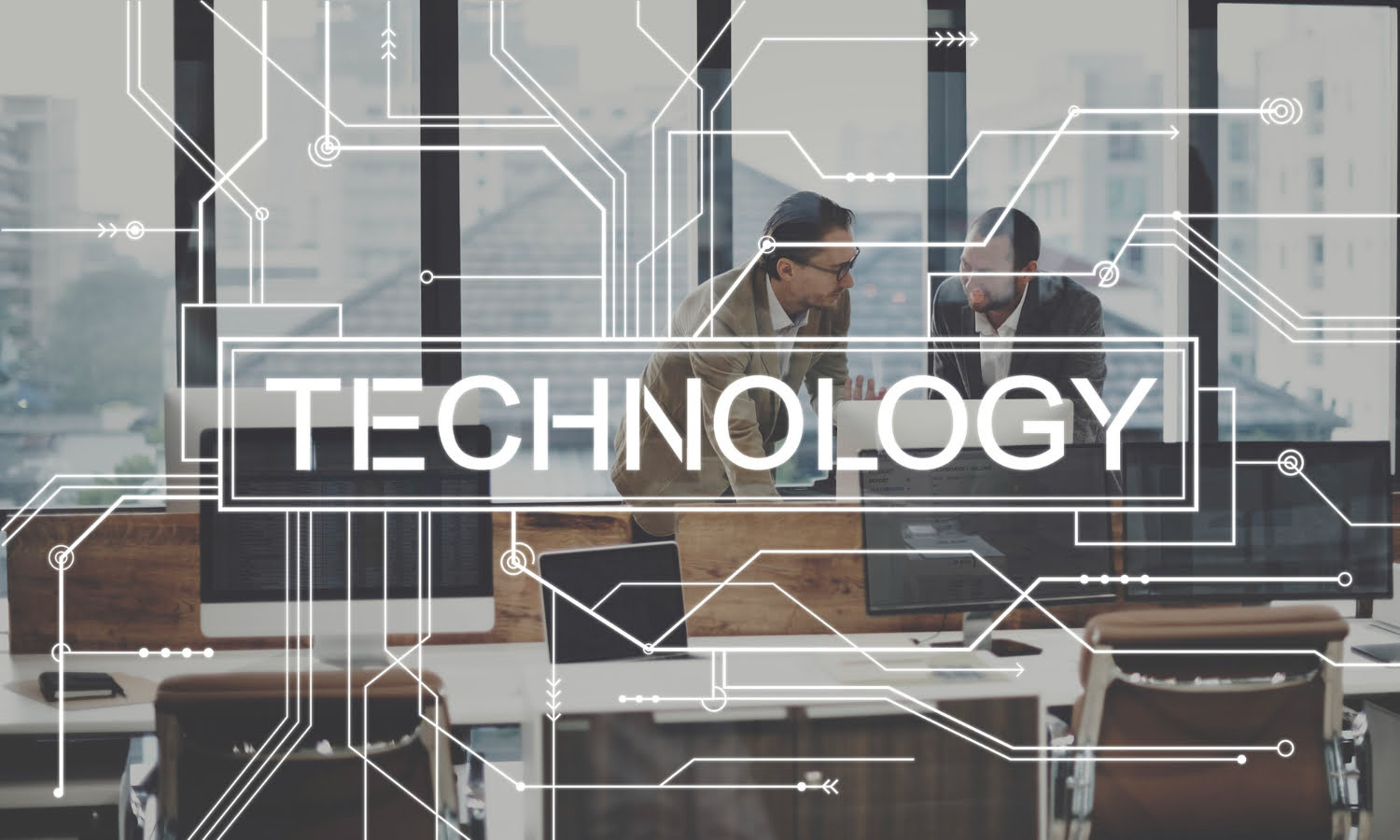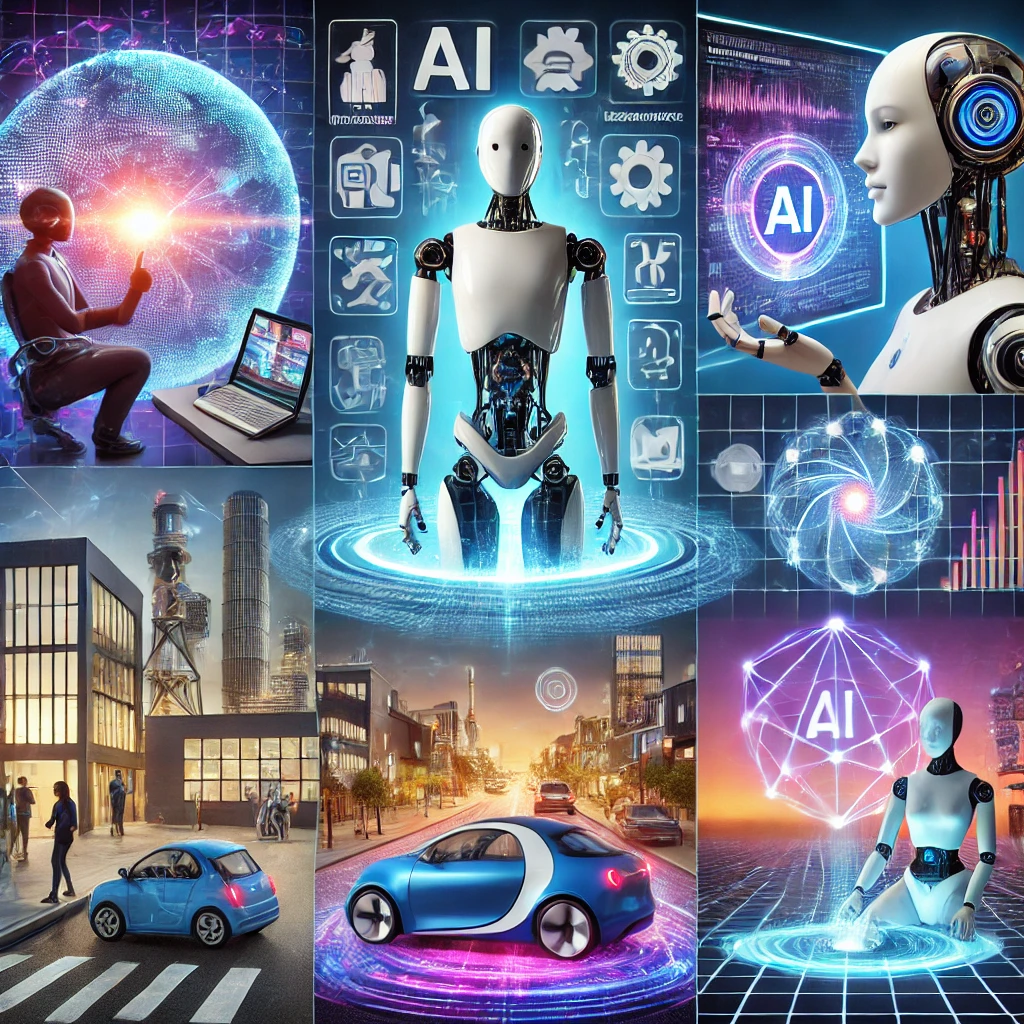5 Emerging AI Technologies and Their Applications
Contents
Introduction
Artificial Intelligence (AI) has revolutionized the technology landscape, introducing innovative solutions and transforming various industries.
This blog post explores the latest advancements in AI technologies, their applications, and some recommended products available on Amazon that leverage these technologies.
Key AI Technologies

1. Multimodal Generative AI
Multimodal generative AI refers to models that can process and generate multiple forms of data, such as text, images, and audio, simultaneously. This technology enables more sophisticated and versatile AI applications, including content creation, virtual assistants, and enhanced user interactions. Recent advancements have seen the integration of these models into platforms that can generate rich, multimodal content tailored to specific user needs, providing more engaging and immersive experiences. For instance, AI systems can now create detailed images from textual descriptions, craft personalized music compositions, and generate realistic video content, all contributing to a more interactive and dynamic user experience.
2. Ethical AI and Open-Source Solutions
As AI becomes more pervasive, the emphasis on ethical AI development and open-source solutions has grown. Ethical AI prioritizes transparency, fairness, and accountability, addressing biases and ensuring responsible use. Initiatives like AI ethics boards and guidelines are becoming standard in AI development, while open-source AI projects foster collaboration and innovation by making AI tools and frameworks accessible to a broader audience.
This democratization of AI allows more stakeholders to participate in and benefit from AI advancements. Open-source frameworks such as TensorFlow and PyTorch have revolutionized the way developers approach AI, providing robust tools for building and deploying machine learning models.
3. AI in Cybersecurity
AI’s role in cybersecurity has expanded, with advanced algorithms detecting and mitigating threats in real time. AI-powered systems can analyze vast amounts of data to identify patterns indicative of cyberattacks, enhancing security measures and reducing response times.
Machine learning models are particularly effective in identifying new and evolving threats, enabling more proactive security strategies. Additionally, AI-driven cybersecurity solutions are becoming essential for managing the increasing complexity and volume of cyber threats. For example, AI can help in the identification of zero-day vulnerabilities, allowing organizations to patch security holes before they are exploited by malicious actors.
4. Explainable AI (XAI)
Explainable AI (XAI) is an emerging field focused on making AI decision-making processes more transparent and understandable to humans. As AI systems become more complex, understanding how they arrive at certain conclusions is crucial for trust and accountability.

XAI techniques aim to provide insights into the internal workings of AI models, allowing users to understand the reasoning behind specific decisions.
This is particularly important in sectors such as healthcare and finance, where the consequences of AI-driven decisions can be significant. By making AI more interpretable, XAI helps bridge the gap between AI developers and end-users, fostering greater trust and adoption.
5. Edge AI
Edge AI refers to the deployment of AI algorithms on local devices, such as smartphones, IoT devices, and sensors, rather than relying on centralized cloud computing. This approach reduces latency, enhances privacy, and allows for real-time processing of data.
Edge AI is particularly valuable in applications where immediate decision-making is critical, such as autonomous vehicles, industrial automation, and smart home devices. By processing data locally, edge AI reduces the need for constant data transmission to the cloud, leading to more efficient and responsive AI systems.
Applications of AI Technologies
Healthcare
AI technologies are transforming healthcare by improving diagnostics, personalized treatment plans, and patient monitoring. AI algorithms analyze medical images, predict disease outbreaks, and provide virtual health assistants to enhance patient care.
For example, AI can assist in detecting early signs of diseases such as cancer through image analysis, improving the accuracy and speed of diagnosis. In personalized medicine, AI-driven insights can tailor treatment plans based on individual patient data, leading to better outcomes.
Moreover, AI-powered wearable devices can continuously monitor patients’ vital signs, providing real-time health data to healthcare providers and enabling proactive interventions.
Finance
In the finance sector, AI applications include fraud detection, algorithmic trading, and personalized financial advice.
AI systems analyze transaction data to identify suspicious activities, optimize trading strategies, and offer tailored investment recommendations.
AI-powered chatbots provide instant customer support, handling a wide range of inquiries and transactions.
Moreover, AI-driven financial planning tools can help individuals and businesses make informed decisions by analyzing market trends and financial data. AI is also being used to assess credit risk more accurately, enabling fairer and more efficient lending practices.
Retail
Retailers utilize AI for inventory management, personalized marketing, and customer service.
AI-driven chatbots handle customer inquiries, while recommendation engines analyze purchase history to suggest relevant products, improving the overall shopping experience.
AI also helps retailers optimize supply chain operations by predicting demand and managing stock levels more efficiently.

In addition, AI-powered visual search technologies enable customers to find products by simply uploading images, enhancing the shopping experience.
Retail analytics powered by AI can provide valuable insights into customer behaviour, allowing retailers to tailor their strategies to meet evolving consumer needs.
Autonomous Vehicles
AI technologies power autonomous vehicles by processing sensor data to navigate and make real-time decisions.
These systems enhance safety, efficiency, and convenience in transportation. Advanced driver-assistance systems (ADAS) use AI to provide features like lane-keeping assistance, adaptive cruise control, and collision avoidance, making driving safer.

Fully autonomous vehicles leverage AI to handle complex driving environments, reducing the need for human intervention and paving the way for future transportation innovations.
The development of AI-driven vehicle-to-everything (V2X) communication systems further enhances the safety and efficiency of autonomous driving by enabling vehicles to interact with each other and their surroundings.
Education
AI is revolutionizing education by providing personalized learning experiences, automating administrative tasks, and offering intelligent tutoring systems. AI-driven platforms can analyze students’ learning patterns and adapt instructional content to meet their individual needs, promoting more effective and engaging learning. Virtual tutors powered by AI can provide instant feedback and support, helping students master new concepts and skills.
Additionally, AI can automate grading and administrative tasks, freeing up educators to focus on teaching and mentoring. AI also enables the development of immersive learning environments, such as virtual and augmented reality, enhancing the educational experience.
Agriculture
AI technologies are being applied in agriculture to improve crop management, optimize resource usage, and increase yield. AI-powered systems can analyze satellite imagery and sensor data to monitor crop health, predict pest infestations, and recommend optimal planting and harvesting times. Precision agriculture uses AI to apply water, fertilizers, and pesticides more efficiently, reducing waste and environmental impact.

Autonomous farming equipment, guided by AI, can perform tasks such as planting, weeding, and harvesting with high precision, increasing productivity and reducing labour costs. AI-driven market analysis can also help farmers make better decisions about crop selection and pricing.
Entertainment
The entertainment industry is leveraging AI to create more immersive and personalized experiences for audiences. AI algorithms analyze user preferences to recommend movies, music, and games tailored to individual tastes. In content creation, AI is being used to generate scripts, compose music, and even create visual effects, augmenting the creative process.

Virtual reality (VR) and augmented reality (AR) experiences are being enhanced by AI, providing more realistic and interactive environments. AI-driven analytics help entertainment companies understand audience behaviour and preferences, enabling them to create content that resonates more deeply with their audiences.
Manufacturing
AI is transforming manufacturing by optimizing production processes, improving quality control, and reducing downtime. AI-powered predictive maintenance systems can analyze sensor data to predict equipment failures before they occur, minimizing disruptions and reducing maintenance costs. In quality control, AI algorithms can inspect products for defects with greater accuracy and speed than human inspectors. AI-driven automation systems can optimize production schedules, manage supply chains, and reduce waste, increasing efficiency and profitability. Collaborative robots, or cobots, powered by AI, can work alongside human workers, enhancing productivity and safety in manufacturing environments.
Energy
AI is playing a crucial role in the energy sector by optimizing energy production, distribution, and consumption. AI algorithms can predict energy demand, enabling more efficient management of energy resources. In renewable energy, AI is being used to optimize the operation of wind turbines and solar panels, increasing their efficiency and output. AI-powered grid management systems can balance supply and demand in real time, reducing energy waste and improving reliability.
In smart homes and buildings, AI-driven systems can optimize heating, cooling, and lighting, reducing energy consumption and costs. AI is also being used to develop advanced energy storage solutions, enhancing the stability and resilience of the energy grid.
Recommended AI-Enhanced Products on Amazon
1. Echo Dot (5th Gen) with Clock and Alexa
Description: This smart speaker integrates Amazon Alexa, offering voice-controlled assistance, smart home control, and access to various AI-driven features like weather updates, reminders, and music playback. 🎁

Link: Amazon Echo Dot (5th Gen)
2. Ring Video Doorbell
Description: This video doorbell uses AI to enhance motion detection, video quality, and visitor notifications. It offers 3D motion detection and built-in Alexa greetings.

This video doorbell provides 2K resolution with 166° wide viewing angles and a 4:3 aspect ratio, allowing you to see packages from head to toe.
No subscription is needed, as it offers two months of secure local and cloud storage. AI algorithms ensure smart human detection, reducing false alarms.
Enhanced base stations maintain a stable 2.4G Wi-Fi connection. Quick response options and a voice changer ensure privacy during interactions.
Link: Wireless Doorbell Camera
3. Fitbit Sense Advanced Smartwatch
Description: The Fitbit Sense leverages AI to provide advanced health metrics, including stress management, heart health monitoring, and sleep analysis. It also features built-in GPS and voice assistant capabilities.
This product is rich in functions and functions and is in sync with the phone. 🎈
This allows you to monitor different information about your body during various activities and optimize your movements throughout the day. 🎁

4. NETGEAR Nighthawk Tri-Band WiFi 7 Router
Description: This WiFi system uses AI to optimize network performance, ensuring seamless connectivity throughout your home. It supports high-speed internet and multiple device connections.

Link: NETGEAR Nighthawk Tri-Band WiFi 7 Router
5. Recommended book to read🎈
Business Case for AI: A Leader’s Guide to AI Strategies, Best Practices, and Practical Applications is undoubtedly the best book I’ve read in 2023, and surprisingly, it’s a book I can digest in a matter of days.

Link: The Business Case for AI
Conclusion
The advancements in AI technologies are transforming various industries, offering innovative solutions and enhancing user experiences.
From healthcare to finance and retail, AI’s applications are vast and impactful. By integrating AI-powered products into everyday life, consumers can enjoy the benefits of these cutting-edge technologies.
These products not only showcase the practical applications of AI but also provide a glimpse into the future of smart, connected living.
Keep an eye on these trends and consider incorporating AI-enhanced products into your life for a more efficient and intelligent experience.
As AI continues to evolve, its potential applications are likely to expand even further, driving innovation and creating new opportunities across different sectors.
Staying informed about the latest developments in AI technology can help individuals and businesses alike leverage these advancements to improve their operations, enhance their products and services, and stay competitive in an increasingly AI-driven world.
By understanding and embracing the transformative power of AI, we can unlock new levels of efficiency, creativity, and innovation, paving the way for a smarter and more connected future.
Whether it’s through improving healthcare outcomes, enhancing financial services, optimizing manufacturing processes, or creating more engaging entertainment experiences, AI is set to play a central role in shaping the future of technology and society.


